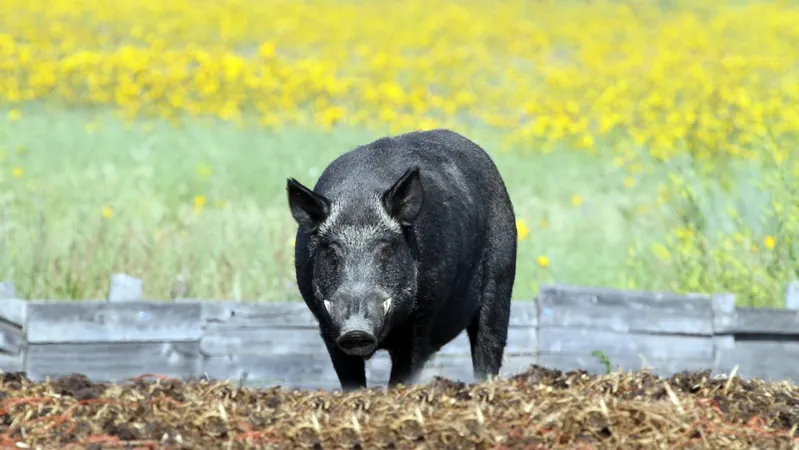
Shocking Discoveries: Stress is Warping Our Memories!
2024-12-23
Author: Emma
Toronto, Canada - November 15, 2023
In groundbreaking research conducted by experts at The Hospital for Sick Children (SickKids), startling revelations have emerged regarding how stress profoundly alters the way our brains encode and retrieve memories, particularly aversive ones. This study not only illuminates the effects of stress on memory but also reveals a potential new intervention aimed at restoring proper memory specificity for those grappling with post-traumatic stress disorder (PTSD).
Imagine you stumble during a presentation—suddenly, the thought of your next talk fills you with dread, your mind associating it with failure. This fear, while tied to a specific memory, can spiral out of control. Stress from traumatic experiences—such as acts of violence or ongoing anxiety—not only festers but can generalize, creating a web of fearful associations. For example, the sound of fireworks or car backfires might unexpectedly trigger distressing memories, effectively overshadowing your day. In PTSD, this generalization can lead to heightened and detrimental consequences in everyday life.
A study published in the esteemed journal *Cell*, led by Drs. Sheena Josselyn and Paul Frankland, Senior Scientists in the Neurosciences & Mental Health program, reveals the biological mechanisms behind this phenomenon. They’ve identified interventions that could help individuals with PTSD regain control over their memories.
“A little stress can be beneficial—it’s what motivates us,” states Dr. Josselyn, who holds a Canada Research Chair focusing on the Circuit Basis of Memory. “However, excessive stress can be crippling. We found a way to mitigate harmful responses often seen in PTSD, potentially isolating fear reactions to specific triggers.”
In collaboration with Dr. Matthew Hill from the University of Calgary's Hotchkiss Brain Institute, the research team successfully blocked certain endocannabinoid receptors in the brain, aiming to limit the spread of memory generalization. This was tested in a preclinical model, where subjects first endured a mild stressor before being exposed to an aversive event, mimicking the way PTSD manifests in humans.
Their investigation into memory engrams—physical representations of memories within the brain—unveiled that, typically, these are represented by a small network of neurons. However, the engrams formed under stress conditions involved a significantly larger network, creating generalized fearful memories that could be triggered even in safe environments.
Delving deeper, the researchers discovered that stress heightened the release of endocannabinoids, disrupting the functioning of interneurons that traditionally help regulate the size and specificity of memory engrams in the amygdala—the brain's emotional processing hub. “Think of endocannabinoid receptors as a velvet rope at an exclusive nightclub. When stress floods the system with endocannabinoids, that rope disappears, leading to the creation of overly generalized and fearful memories,” Dr. Josselyn explains.
Recent studies have further linked this discovery to the observation that younger brains may form larger, more generalized memory engrams under stress than adults, compelling researchers to explore how everyday stressors might also tarnish positive memories.
Dr. Paul Frankland noted, “As we unravel the intricate biological functions shaping human memory, our goal is to translate these insights into effective therapies for psychiatric disorders and other cognitive challenges over a person’s life.”
With these promising discoveries, the potential for innovative therapeutic strategies to combat the debilitating effects of PTSD is on the horizon. Understanding the relationship between stress and memory resilience stands as a beacon of hope for those affected, opening new doors to healing in an increasingly complex world.









 Brasil (PT)
Brasil (PT)
 Canada (EN)
Canada (EN)
 Chile (ES)
Chile (ES)
 España (ES)
España (ES)
 France (FR)
France (FR)
 Hong Kong (EN)
Hong Kong (EN)
 Italia (IT)
Italia (IT)
 日本 (JA)
日本 (JA)
 Magyarország (HU)
Magyarország (HU)
 Norge (NO)
Norge (NO)
 Polska (PL)
Polska (PL)
 Schweiz (DE)
Schweiz (DE)
 Singapore (EN)
Singapore (EN)
 Sverige (SV)
Sverige (SV)
 Suomi (FI)
Suomi (FI)
 Türkiye (TR)
Türkiye (TR)